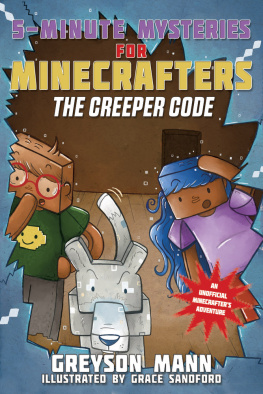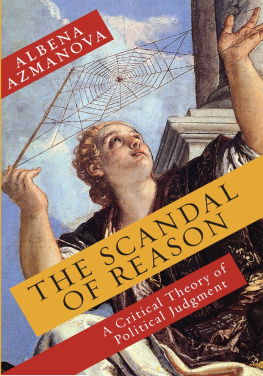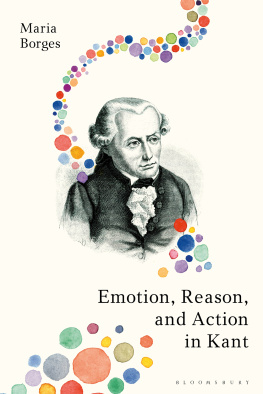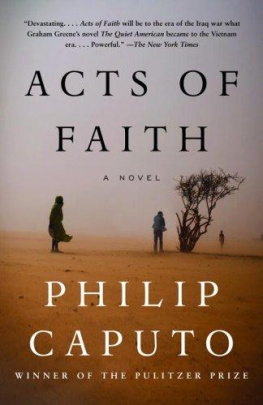Albena Stambolova
Everything Happens as It Does
All propositions are of equal value. The sense of the world must lie outside the world. In the world everything is as it is, and everything happens as it does happen: in it no value exists and if it did exist, it would have no value.
Ludwig Wittgenstein; Tractatus Logico-Philosophicus, 6.41
This story considers itself the story of everyone. I dont know if this is true. You will be the one to decide.
I myself am certain that all stories are love stories, so I have refrained from classifying it as such.
It is simply the story of women and men who are mothers and fathers, sisters and brothers, loved ones and friends or, in a nutshell, of people who are tigers and lions, oranges and lemons.
This story is neither funny, nor sad. It is simply a story that takes place somewhere on the border between the world we know and the world we are no longer very sure about.
1. Little Boys and Their Parents
In the beginning, Boris was unable to think about the surrounding world. Things just happened to him, and he had no way of avoiding them.
His parents, for example, meek as they were, looked like a grandpa and a grandma rather than a mother and a father, and that always unsettled him. His sister was eighteen years older than him, and people mistook her for his mother.
Later, as he grew older, he devised a way to escape. He would try to lose himself in uninhabited worlds, where it was hard to establish relationships of the family kind.
It was with the bees that he first managed to draw the boundaries of something he could call his own.
Before he enrolled in the English Language School in Plovdiv, he had a lot of time on his hands and nothing to do. He made it his purpose simply to pass the time. Afterward the opposite happened: he learned to stretch time to fit whatever work he was doing. And to stay in his room, while his sisters family, although he was supposed to be living with them, carried on a life of its own.
When he started wearing glasses, the painful awkwardness of his childish face shifted into a look of seriousness. The glasses somehow set everyone at ease, as if things had finally slipped into place. Wearing glasses had the effect of calming the vague fears the family harbored about Boris. Not that they now knew him better than before. But an introverted boy with glasses was less worrisome than an introverted boy without glasses.
Boris could feel the change in peoples perception of him and immediately saw its advantages. Later, when he grew a beard, he could see how, just as the glasses before, the beard replaced whatever it was in him that provoked fear in others. One thing substituted for another. And behind it all stood the child named Boris.
He never asked himself how others did it. Getting to an inviolable place of his own was all that mattered, and he could always tell when he was there.
He learned to do things no one paid attention to. Or to do things in such a way that no one paid attention to him. For instance, he was willing to eat something he couldnt stand, rather than give himself away and make his dislike known to others. He realized that his mother felt anxiety and, although he could not understand why, he felt he knew enough already.
Then the eight-year-old grandson of the old woman died. She lived in the neighboring house and the boy used to spend the summers with her. His father and mother would drive him there in June; they would visit him, bringing some food, several times in July and August, and finally they would come and take him back for school in September. Boris and the boy were the same age and knew each other vaguely. But since Boris never played with other children, the city boy had more friends than he did.
Fishing occupied the boys time in the summer. The reservoir was thick with ooze and stale water but generations of carp lived in it. Boris could tell where the boys gathered by the smoke columns of their fires. The air smelled of dry timber and food. Or rather, of what they called foodtheir catch. Boris did not want to have anything to do with them. Neither the boys, nor the fish, nor what the boys did with the fish, appealed to him.
Nobody could explain how the city boy drowned. One evening he just didnt come home to his grandmother.
Grief settled like a cloud over the entire summer. Boriss mother took him to see the boy. Even later, as an adult, he still couldnt understand why the child was dressed in white and laid in a flower-covered coffin, by which everyone in the village stopped to bow.
When Boris left a flower inside the coffin, as his mother had instructed him, he felt like this was a kind of punishment. People wailed over the boys death as if they had killed him themselves.
It was the first time Boris had seen a dead person. A child. He stared at the calm face and suddenly thought that the boy had managed to hide somewhere. He was pierced by jealousy, wishing he, too, could become invisible to others.
As usual, he never mentioned a word about this to anyone.
For the rest of the summer, the children were not seen in their playing grounds. The weather became unbearably hot. Storms rose every now and again, blowing down twigs and leaves. The old woman stayed in her house. Sent by his mother, Boris would occasionally bring soup and bread to her. The old woman would sit or lie in a small heap on the floor. All the doors would be open. But all the windows closed.
Boris liked visiting her. She didnt look at him or speak to him. He never caught her sleeping. Whenever he entered, he noticed her opened eyes first. She looked past him into the distance. Her eyes were beautiful, Boris thought. Full of attention and smiling. She never appeared confused or scared.
He would leave another bowl and a piece of bread wrapped in cloth on the table, taking the old ones. The woman never touched them. Boris would then sit on the edge of the bed, chasing away the flies. For some reason the kitchen was much cooler than the rest of the house. Or it just seemed so to him. The old woman had also found a way to hide herself, and Boris wanted to know how. He felt good sitting with her, even better than with his bees. It was difficult to leave. Once, his mother came looking for him. He saw her coming into the garden and got up to meet her. If she had seen him sitting on the bed with the old woman, he would have felt ashamed. To sit with her was something that only belonged to him and he did not want his mother to know about it. He rushed outside, and his mother stayed in the house for quite a while.
At the end of that summer, his parents decided to baptize him. God only knows why they hadnt done it earlier. Boris was mortified. He could not understand why this had to happen to him: it never happened to anyone else. The comparison caught him unprepared; he was not used to seeing his life measured up against those of others. He was overcome by panic at the prospect of this mystery in which he was to become the main protagonist. But he understood that he would be doing something for his parents, something, whatever it was, for their benefit.
He let them dress him in clothes he had never seen before and joined the procession of adults on the forest path leading to the chapel. They forbade him to carry anything with him. He felt content moving along the path, observing how his feet followed each other over the ground. One foot, the other foot, then again, as if moving by their own volition.
Movement and silence hand in hand. Intimations of other silences, of other movements, of someone walking next to someone, hovered around them. Each bend in the path made him anticipate the next. It was anticipation too brief to invite fear, under the dome of the indefinite woods, dimensionless like a house never visited.










